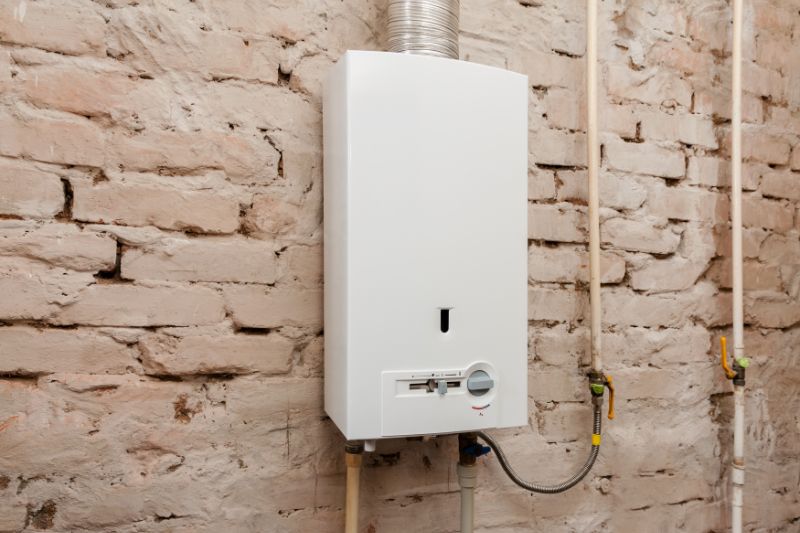Everything You Need to Know About Boilers

Did you know radiant heat—the type of heat your boiler creates—was one of the first methods of indoor heating systems invented, dating back to 1300 BC?
At Adams Heating & Cooling, though we haven’t been working with boilers since 1300 BC, we know a thing or two about them. Our highly trained and experienced heating, ventilation, and air conditioning (HVAC) professionals regularly install and work on them here in Milford.
Boilers Produce Radiant Heat
Modern boilers can be an extremely efficient way of heating your Ohio home. Many people prefer radiant heat over other ways to heat their homes. Some of its advantages are:
• Efficiency—won’t lose heat via ductwork leaks
• Effectiveness—warms objects instead of your home’s air
• Cleanliness—doesn’t decrease your indoor air quality due to a lack of blowing allergens and particles throughout your home
According to the American Academy of Allergy, Asthma & Immunology (AAAAI), roughly 10 to 30 percent of people worldwide suffer from allergies. If this is you, having a boiler with radiant heat instead of a forced-air system in your Ohio home can help you diminish your symptoms.
Rather than heating the air as forced-air systems do, radiant heat warms a room’s objects—including you. This method provides more consistent heating since a forced-air system cycles on and off more frequently.
Most boilers share common attributes. It’s helpful to know what they are to help you keep your home comfortable and safe for years to come.
Just the Facts
1. Your boiler probably does not actually boil its water.
This term hails back when steam was primarily used for heating. Though you may have an older steam boiler, it is much more likely a water boiler. These days the water is kept between 145 and 190 degrees Fahrenheit.
2. Hot water flows throughout your Milford home, and the heat radiates to warm it.
This process explains the term radiant heat. Radiant heat has many forms. No matter if you have in-floor, cast iron radiators, or fin tubes, they are all types of radiant heat. And they utilize gas, oil, or electricity for power.
3. Maintenance of your boiler is critical to life expectancy.
You must keep up with its annual professional maintenance to ensure your boiler is operating safely and efficiently. Many states require annual safety inspections by law on larger boilers.
4. You may have a high-efficiency boiler already.
The easiest way to tell is by looking at the flue pipe coming out of the top or side of your boiler. A metal flue pipe tells you it’s a standard efficiency boiler. On the other hand, if it has a PVC (or hard, white plastic) pipe, you have a high-efficiency boiler.
5. It’s good to know what’s likely to fail on your boiler.
Like any piece of machinery, the moving parts are usually the first to fail. When it comes to your boiler, it’s likely the pumps or electrical components to fail first.
6. Modern boilers are not dangerous, but radiators do get hot.
In most cases, radiators are not hot enough to burn a child, but it is important to teach your children not to touch the radiators. If they are too warm, adjust the temperature on your boiler accordingly.
7. Boilers no longer use a standing pilot light.
If you have an older boiler and are still dealing with a pilot light, it may be time to consider upgrading. Talk to one of our Adams Heating & Cooling boiler pros, and we can help you make an educated decision about an upgrade.
8. Modern boilers are closed loop systems.
They are not endlessly wasting water as you may believe. Modern boilers actually can be a very efficient way to heat your home when properly designed.
Contact Us for All Your Boiler Needs
At Adams Heating & Cooling, we can help you with a boiler installation or replacement, repair, or maintenance for your Milford, OH, home. Our team loves all things HVAC, so we are happy to discuss any questions you may have. Call us at 513-474-1600 or request service online today!
